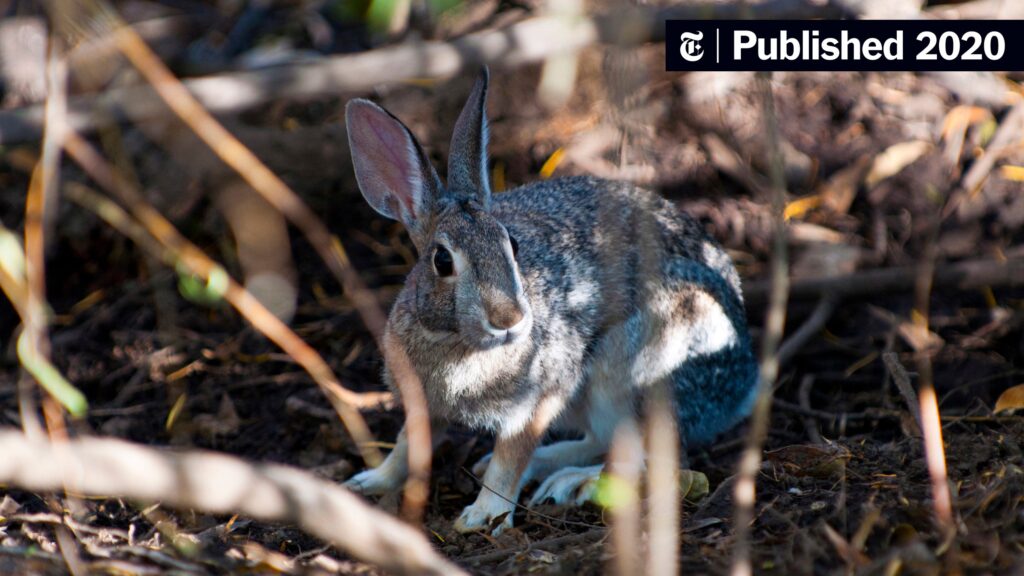In the latest outbreak of the rabbit haemorrhagic disease virus (RHDV2) in South Africa, the Endangered Wildlife Trust (EWT) is urgently calling on farmers and the public to report any unusual deaths of wild hares and domestic rabbits. The disease, which previously caused widespread mortalities between October 2022 and February 2023, has resurfaced in areas such as Gauteng, the Eastern Cape, and the Western Cape. Unfortunately, there are currently no options available for vaccinating wild hares and rabbits. However, a limited number of vaccines are available for domesticated rabbits, and pet owners are advised to contact their local veterinarians for more information. The EWT emphasizes the importance of reporting suspected cases in order to effectively manage the disease and prevent a large-scale decline in rabbit and hare populations, which would negatively impact ecosystems and predator-prey relationships.
Outbreak of Rabbit Haemorrhagic Disease Virus (RHDV2) in South Africa

Confirmation of Second Outbreak
The second outbreak of the deadly rabbit haemorrhagic disease virus (RHDV2) has been confirmed in South Africa. The Endangered Wildlife Trust (EWT) has called on farmers and members of the public to report unusual deaths of wild hares and domestic rabbits to the trust and their nearest state veterinarian. The disease has caused widespread mortalities of wild hares and domestic rabbits across the Eastern Cape and in the northern and western parts of South Africa between October 2022 and February 2023. The EWT has received reports confirming that the disease has re-emerged.
Previous Outbreaks in October 2022 to February 2023
During the previous outbreak, the disease caused significant mortality among both wild hares and domestic rabbits. The outbreaks were reported in Gauteng, the Eastern Cape, and the Western Cape. Cases were also reported in Knysna, the Langkloof, and Malmesbury in the Western Cape. This indicates the widespread nature of the disease during its previous occurrence.

Affected Areas
The current outbreak of RHDV2 has affected several areas in South Africa. These include Gauteng, the Eastern Cape, the Western Cape, Knysna, Langkloof, and Malmesbury. The disease has spread to both urban and rural areas, impacting both wild hares and domestic rabbits.
Impact on Wild Hares and Domestic Rabbits
The outbreak of RHDV2 has had a significant impact on both wild hares and domestic rabbits. Widespread mortalities have been observed in these populations, leading to concerns about the long-term survival of these species. Unfortunately, there are limited options for vaccination against RHDV2. While vaccines are available for domesticated rabbits, they are not freely available and require owners to consult with veterinarians to access them.

Limited Vaccination Options
Vaccination is an important tool in preventing the spread of RHDV2. However, currently, there are limited options for vaccinating wild hares and rabbits. Vaccines are available for domesticated rabbits, but they are not registered for use in South Africa. This means that obtaining the vaccine requires owners to consult with veterinarians and follow their advice.
Need for Vaccination of Domesticated Rabbits
Given the limited vaccination options for wild hares and rabbits, it becomes even more crucial to prioritize the vaccination of domesticated rabbits. Pet owners should contact their local veterinarians for more information on obtaining the vaccine for their rabbits. Protecting domesticated rabbits not only ensures their individual health but also helps prevent the further spread of RHDV2 to the wild population.

RHDV2 as a Controlled Animal Disease
RHDV2 is recognized as a controlled animal disease in South Africa. A directive from Western Cape Agriculture Veterinary Services highlights the importance of managing this disease effectively. In South Africa, apart from domesticated rabbits related to the European rabbit, there are several indigenous rabbit and hare species, including the Cape hare, scrub hare, red rock hare, and the critically endangered riverine rabbit. These species are important for maintaining biodiversity and ecosystem balance.
Directive from Western Cape Agriculture Veterinary Services
According to a directive from Western Cape Agriculture Veterinary Services, South Africa was previously free from RHDV2. The disease is a controlled animal disease in terms of the Animal Diseases Act. The directive provides important information about the clinical signs of RHDV2 and emphasizes the need for prompt reporting of suspected cases. This helps in effective disease management and prevention.

Indigenous Rabbit and Hare Species in South Africa
South Africa is home to several indigenous rabbit and hare species, including the Cape hare, scrub hare, red rock hare, and the critically endangered riverine rabbit. These species play a vital role in maintaining biodiversity and ecosystem balance. It is important to protect these species from the threat of RHDV2 and ensure their long-term survival.
Clinical Signs of RHDV2
Sudden death is one of the most striking signs of RHDV2. Other clinical signs include fever, inactivity, and poor appetite. The disease causes liver necrosis, splenic congestion, and disseminated intravascular coagulopathy in all organs and tissues. These clinical signs help veterinarians in diagnosing the disease and taking appropriate measures to manage it.
Importance of Managing RHDV2
Managing RHDV2 is of utmost importance due to its potential impact on ecosystems and the food chain. The decline in rabbit and hare populations can have negative consequences for predator species that are dependent on them for food, such as jackals and caracals. Maintaining a healthy population of rabbits and hares is crucial for a balanced and functioning ecosystem.
Impact on Ecosystems and Food Chain
Rabbits and hares play a vital role in the food chain as prey for predators. The decline in their populations due to RHDV2 can have cascading effects on the ecosystem. Predators like jackals and caracals rely on rabbits and hares as a food source. A large-scale decline in rabbit and hare populations would disrupt the balance of the food chain and potentially lead to negative consequences for these predator species.
Call to Report Suspected Cases
To effectively manage the outbreak of RHDV2, it is essential to report any suspected cases to the appropriate authorities. The Endangered Wildlife Trust and state veterinarians are actively encouraging farmers and the public to report any unusual deaths of wild hares and domestic rabbits. Reporting suspected cases helps in monitoring the spread of the disease and implementing timely measures to prevent further outbreaks.
Significance of Reporting for Effective Management
Reporting suspected cases of RHDV2 is crucial for effective disease management. By reporting cases, authorities can gain a better understanding of the extent of the outbreak and take appropriate actions to prevent its further spread. Timely reporting enables the implementation of targeted measures to control the disease and protect rabbit and hare populations.
Background of Annelie Coleman
Annelie Coleman is a representative of Farmer’s Weekly in the Free State, North West, and Northern Cape. With a deep-rooted passion for agriculture, especially beef cattle farming, Annelie brings a unique perspective to the reporting of agricultural news. Growing up on a maize farm and having a family business in the agricultural sector, she has firsthand experience and knowledge of the challenges faced by farmers in South Africa. Annelie is also interested in indigenous African breeds and their role in sustainable farming.
Additional Articles from Farmer’s Weekly
Farmer’s Weekly provides a variety of articles covering various aspects of agriculture. Some recent articles include:
- Three Hundred Sheep Killed by Veldfire in the Free State
- Increase in Farm Jobs with Possible Wage Rise
- BRICS Summit Expands Export Markets for SA Agriculture
- AfriForum Disputes SAPS Farm Murder Numbers
- The Urgency of Climate Change Action
- Controlled Elephant Populations with Contraceptives
These articles offer valuable insights into the current issues and developments in the agricultural sector.
Contact Info and Policies
For more information, readers can contact Farmer’s Weekly through their provided contact details. The magazine provides information on subscription, advertising, and classifieds. They also have privacy policies and terms & conditions in place to ensure the protection of personal information. The use of cookies on their website is explained as well.
By staying informed and taking necessary precautions, South Africa can effectively manage the outbreak of RHDV2 and protect the precious rabbit and hare populations that are essential for a healthy ecosystem.

